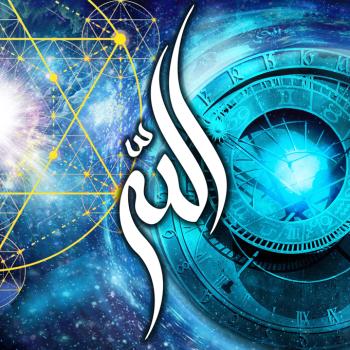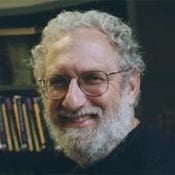"But that is not where we should start. So I ask you—What do you know about what you do first, before you stop the conversation and make the people on the other side obey?"
He stopped, so out of breath I wondered if he had a lung problem. He gave me another intense look, daring me to offer another facile philosophical retort.
But I couldn't. I was stumped. I drank some tea to give myself time to think.
Oh there were some pretty trite answers I could have given, more of the "standard" philosophy sort of thing. Let's all be rational, avoid self-contradiction, take established facts into account. If we are talking about morality, we need to think about how our actions affect other people; and we need to find some way to think ourselves out of the naturally self-centered perspective that people naturally take. We have to distinguish between scientific claims, which can be tested; and religious claims, which cannot, at least not in the same way. We have to think about principles to direct our actions and the effects of what we do on human happiness and what virtues make sense for human beings. When we talk about justice we have to be careful about gender bias, racial bias, cultural bias, and—well, you get the idea.
But having said all that, and even taken it seriously to some extent, well then we could get down to what really mattered: showing that our beliefs and values were correct.
Samuel was saying something different. Openness was not just another move in the game for him, openness was the game, because without openness we couldn't be changed by other people, and couldn't really live with them. We would just try to make sure they came around to our side. And ultimately we couldn't even really learn about how ethical we were, how committed to a real justice or just all the time falling back on some knee-jerk, self-congratulatory story about our own moral correctness.
Of course to get Samuel off your back you could invoke all the people who just wouldn't be part of a conversation. You might want to talk, but they would put a machine gun on the table and tell you what to do. Over all this, you might say, was the shadow of Hitler—the one we cannot talk to.
"Again," answered Samuel, a little impatience in his voice, "you miss the point. Do not go rushing to Hitler, for God's sake. Is Hitler right around the corner, breathing down your neck? No, Hitler is in the past, Hitler is finished and known.
"Are you finished? Have you nothing to learn? Are you willing to respect other people to the point where you find some truth in what they say? If you cannot, how will you be in a community with them? And how will you learn what you need to learn about yourself?
"The key to moral conversation is that you and the other people are not finished. You are in the process of becoming. That is why you talk. Not just to pound out the same old ideas over and over but to change, to grow. That is what makes a moral community. That is what you do before you turn to the laws and guns and the shaming of all the ones you despise.
I was silent. And silence is perhaps the greatest acknowledgment a professional argument maker like me can make to a superior... argument? Well, Samuel hadn't really made an argument, but what he had done was cast the whole process of moral conversation in a new light. A goal not of finding the truth, but of mutual understanding. And to have that understanding, we had to have a certain kind of relationship. And therefore the relationship, not the elusive truth, was the key. How can I be committed to my moral values, and stay in touch with people with very different ones? How can I think not just for myself, but for the relationship as well? In a way it was simple, painfully simple. How had I missed it all these years?
"Realize," said Samuel, putting on his coat and getting ready to leave. "I am surely not the first person to think like this. Women philosophers have been talking for years about empathy—really trying to understand what other people feel as a basis for knowing how to act. There's the idea that democracy is about citizens communicating with each other, and not just people voting as separate individuals. Gandhi began from a position of moral humility. It is not for me to judge others, he would say, because I am so morally weak myself. The whole Civil Rights Movement in your country used to talk about something they called the "beloved community"—a time when love and respect shaped all our relationships with others. Buddhist teachers have warned us against being attached to our beliefs, as if these verbal formulas were some kind of immovable mooring spot for a windblown selfhood. The Talmud recorded the wrong positions as well as the right ones. Truth and reconciliation commissions ask us to listen to each other's stories, even if those stories are about terrible violence against our families. Professional peacemakers do the same.





